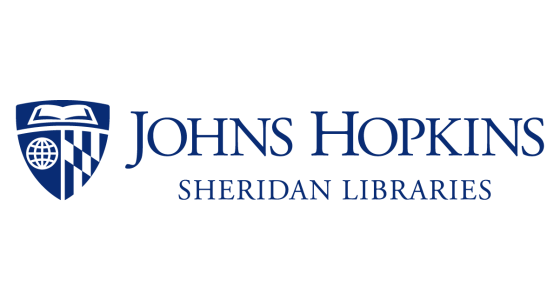Open source licenses are just one piece of the puzzle. When creating, contributing to, or using open source software, you should also consider how legal protections such as patents, trademarks, and copyright may impact your project’s rights and obligations.
Trademark
A trademark can be any word, phrase, symbol, design, or combination of these things that identifies an organization’s goods or services.
Copyright
A copyright in software grants the software owner the exclusive right to reproduce, distribute, and prepare derivative works of the software files.
Sample copyright notices
Copyright [year repository becomes public] The Johns Hopkins University
While the inclusion of a copyright notice is not required, it is common practice and provides a few benefits. The copyright notice informs the public of the owner of the work, which is commonly the author or the author’s employer.
The copyright owner has published the source code and other works stored in this repository for informational purposes only. The copyright owner grants no license to reproduce, prepare derivative works
Use if you are planning to make your code repository public, but do not wish to add an open source license.
General copyright laws, policies and procedures
Learn more about who holds copyright for your work
Patents
A patent in software grants the software owner the exclusive right to make, use, sell, and import products and processes that provide the software functionality. Some open source licenses grant users the right to exercise the software owner’s patent rights.
Explicit patent grants in open source licenses
Some open source licenses explicitly grant patent rights to anyone who receives the software. This means that anyone who uses, modifies, or distributes the software is also granted a license to the patents that cover the software. Examples of open source licenses with explicit patent grants include the Apache v2.0, GPL 3.0, and Eclipse 2.0 licenses.
Implied patent grants in open source licenses
Some open source licenses do not explicitly mention patents, but they have been interpreted by some commentators to implicitly grant patent rights based on broader legal principles. Open source licenses that do not have explicit patent grants include the MIT and BSD-3 and GPL 2.0 licenses.
Licenses
An open source license is an intellectual property license and legal agreement that grants users certain rights to use, inspect, distribute, and modify software. Organizations may refer to open-source software as inbound/in-licensed meaning open-source licensed software brought into the organization, or outbound/out-licensed meaning open-source software created by the organization and used by others.
Legal guidance for trademarks, copyrights, patents, and licenses
Case Study
A simplified explanation of how these protections apply to code created or used by a real-world organization.
- Nintendo holds a trademark for the name Nintendo SwitchTM and the logo used for one of its video game consoles.
- Nintendo holds the copyright for any source code they develop to run the Nintendo SwitchTM operating system or Nintendo-developed games.
- Nintendo holds a patent for the controller used with the Nintendo SwitchTM. The controller combines elements of hardware and code into an invention with novel and practical utility.
- Nintendo in-licenses code from other creators for use with the Nintendo SwitchTM, including open source code. Nintendo out-licenses its intellectual property, such as trademarked and copyrighted logos and characters for use on t-shirts, toys, and other merchandise.
